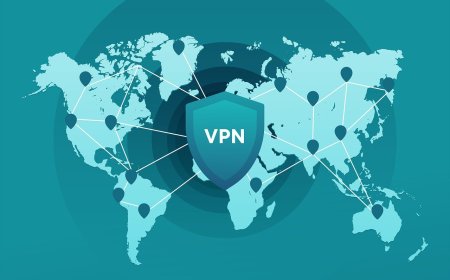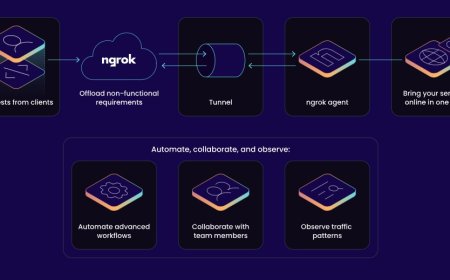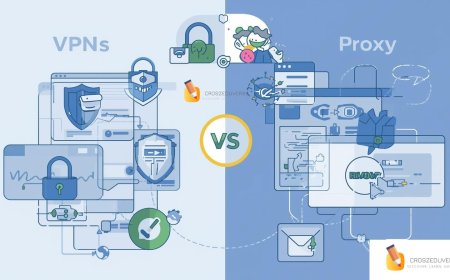Top 5 Free Open Source VPNs for Windows (2025): Ranked by Users & Reviews
Looking for free and secure VPN options for Windows? Discover the top 5 open-source VPNs in 2025, ranked by user reviews. Learn their features, pros, and limitations.

Introduction
In an era of increasing online surveillance and geo-blocked content, VPNs have become essential tools for internet privacy. But many users are hesitant to pay for premium services or download apps with hidden costs.
That’s where free open-source VPNs come in. They offer transparency, control, and often robust security—at zero cost.
In this blog, we explore the top 5 open-source VPNs for Windows in 2025, ranked by user reviews, community trust, and real-world use cases.
1. Proton VPN (Free Plan)
Why It’s Ranked #1:
Proton VPN remains the most recommended free VPN due to its no-logs policy, unlimited bandwidth, and audited open-source code.
Key Features:
-
Unlimited data (even on free plan)
-
Strict no-logs policy
-
Based in Switzerland (strong privacy laws)
-
Easy Windows app with kill switch and DNS leak protection
-
Fully open-source and regularly audited
Limitations:
-
Only 3 free server countries (US, Japan, Netherlands)
-
Slower speed on free tier
Best For: Everyday users who want an easy, privacy-respecting VPN without limits.
2. SoftEther VPN
Why It’s Ranked #2:
SoftEther is a highly versatile and powerful VPN project with support for multiple protocols, often favored by universities and developers.
Key Features:
-
Multi-protocol (SSL-VPN, L2TP, IPsec, OpenVPN)
-
Open-source and actively maintained
-
Strong firewall bypass capabilities
-
Great performance even on limited hardware
Limitations:
-
Setup requires technical knowledge
-
You must host or connect to a server
Best For: Advanced users who want full control over configuration and protocols.
3. OpenVPN
Why It’s Ranked #3:
OpenVPN is the backbone of many commercial VPNs. It’s open-source, reliable, and highly configurable.
Key Features:
-
Uses industry-standard OpenVPN protocol
-
Excellent community and documentation
-
Supports TCP/UDP for flexible connections
-
Secure encryption (AES-256)
Limitations:
-
Not plug-and-play; needs manual configuration
-
Requires access to a VPN server (self-hosted or third-party)
Best For: Users who already have or want to set up their own VPN server.
4. Outline VPN
Why It’s Ranked #4:
Created by Jigsaw (a Google initiative), Outline VPN focuses on simplicity and user-friendly setup, even for non-tech users.
Key Features:
-
Super simple GUI-based setup
-
Based on Shadowsocks (proxy-like VPN)
-
Self-hosted for full data control
-
Easy sharing of access keys
Limitations:
-
Not a full system VPN (protects only selected apps)
-
Limited anonymity vs full VPNs
Best For: Small teams or journalists needing fast, self-hosted proxy-like VPNs.
5. n2n VPN
Why It’s Ranked #5:
n2n is unique in that it builds peer-to-peer VPN tunnels across systems, even behind NAT. Great for local/private use.
Key Features:
-
Peer-to-peer encrypted networking
-
No central VPN server needed
-
Works on Windows, Linux, macOS
-
Ideal for file sharing or LAN expansion
Limitations:
-
Not designed for general online anonymity
-
Requires technical knowledge
-
Less mainstream support
Best For: Developers or local teams needing LAN-style encrypted communication.
Comparison Chart: Open-Source VPNs for Windows (2025)
| VPN | Open Source | Unlimited Data | Easy Setup | Full System VPN | Server Needed |
|---|---|---|---|---|---|
| Proton VPN | ✅ | ✅ | ✅ | ✅ | ❌ |
| SoftEther VPN | ✅ | ✅ | ❌ | ✅ | ✅ |
| OpenVPN | ✅ | ✅ | ❌ | ✅ | ✅ |
| Outline VPN | ✅ | ✅ | ✅ | ❌ (proxy only) | ✅ (self-host) |
| n2n VPN | ✅ | ✅ | ❌ | Partial (LAN) | ❌ |
Final Verdict: Best to Least for General Users
-
Proton VPN – Best all-round free VPN for privacy and ease of use
-
SoftEther VPN – Advanced and flexible, but technical
-
OpenVPN – Reliable and secure, but needs a server
-
Outline VPN – Great for proxy-style tunnels
-
n2n VPN – Niche tool for private networking
Conclusion
Whether you’re a student, freelancer, or developer, these open-source VPNs offer a secure, free way to protect your data. While no VPN is perfect, each of the tools listed above serves a specific need—from full anonymity to P2P LAN access.
Remember: while free VPNs are helpful, choosing open-source means you also get transparency and community-driven security updates.
What's Your Reaction?




















































